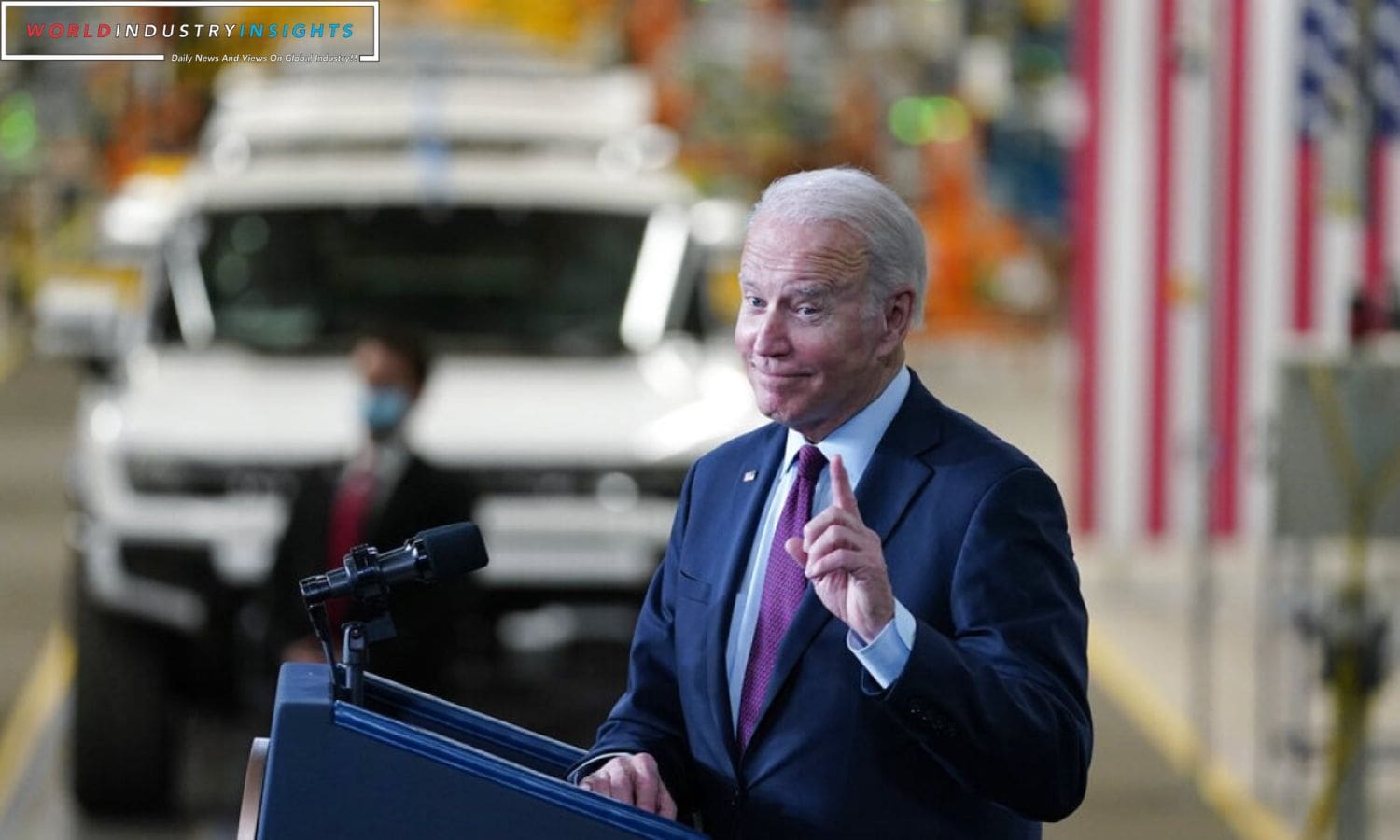Senate Clash Over EV Charger: The U.S. Senate found itself at a crossroads, voting 50-48 on a contentious issue: President Joe Biden’s decision to ease “Buy America” requirements for government-funded electric vehicle charging stations. But the White House swiftly signaled a veto in response to the move.
The White House’s position is simple: the Republican bill would abolish the domestic manufacture requirement for government-funded EV chargers, hurting American industry and jobs. Senate Democrats Sherrod Brown, Joe Manchin, Jon Tester, and independent Kyrsten Sinema voted against the regulation with Republicans.
In February, the Federal Highway Administration (FHWA) had granted a temporary waiver on certain requirements until July 2024, aiming to expedite the acquisition and installation of EV chargers. Congress had allocated $7.5 billion for EV charging station funding, a vital component of the Biden administration’s strategy to boost electric vehicle sales.
The White House argued that rescinding this waiver would also undo the FHWA’s extension of Buy America rules to EV chargers. In effect, it would revert to the 1983 Reagan-era decision, exempting manufactured products from Buy America requirements, thereby leaving EV chargers outside the scope of Buy America standards.

Also Read: Electric vehicle sales: Automakers Unleash Rival EV Charging Network
However, this argument was contested by Republican Senator Marco Rubio, who maintained that the administration could independently repeal the 1983 decision at any time. Rubio contended that the waiver would pave the way for government funds to flow into the hands of Chinese companies responsible for constructing electric vehicle charging stations.
Under the 2021 bipartisan infrastructure law, infrastructure projects such as EV chargers are mandated to source a minimum of 55% of construction materials, including iron and steel, from domestic sources and U.S. manufacturers. While this 55% requirement is set to be enforced starting in July 2024, EV chargers produced by that time can still qualify for funding if installation commences by October 2024.
It’s essential to note that EV chargers rely on iron and steel for critical components like the internal structural frame, heating and cooling systems, and power transformers. For chargers with cabinets that house these components, steel can constitute up to 50% of the total cost.
States and companies across the U.S. have voiced concerns about the global demand for EV chargers straining supply chains. This, in turn, makes it challenging, if not impossible, to meet “Made in America” standards and accelerate the construction of new charging stations.
Our Reader’s Queries
What is the Senate EV charging rule?
Led by U.S. Senator Marco Rubio (R-FL), the Senate has passed a joint resolution to overturn the Biden Administration’s rule that waived Buy America requirements for Electric Vehicle (EV) charging stations purchased using American taxpayer dollars. This move ensures that the Buy America requirements remain in place, protecting American jobs and promoting domestic manufacturing.
Did the Senate vote down Biden decision to waive buy America requirements for EV chargers?
In a 50-48 vote, the U.S. Senate has overturned President Joe Biden’s decision to waive certain “Buy America” requirements for government-funded electric vehicle charging stations. However, the White House has stated that the President will veto the measure.
Why are so many EV chargers broken?
Internal station faults/errors were found to be the second most common reason for failed charges, accounting for 38% of cases according to EV Connect. This category encompasses a variety of issues, such as defective cables, power converters, software malfunctions between chargers and EVs, or even problems with the utility equipment.
What is the Senate Bill 454 Electric Vehicle Charging Stations Open Access Act?
The EV Charging Stations Open Access Act, also known as SB 454 (Corbett), Chapter 418, Statutes of 2013, has been established to ensure that providers of EV charging stations cannot demand a subscription or membership as a prerequisite for using the station. This act also mandates that the total charges for using the station must be displayed clearly and accurately.

